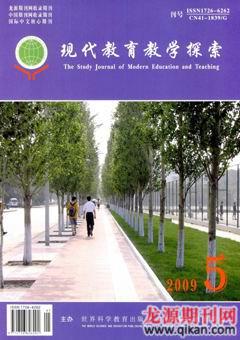试论英汉翻译中的词类转译
李善华
英译汉过程中,有些句子可以用“一个萝卜一个坑”的方法来逐词对译,有些句子则由于英汉两种语言表达方式的不同,就不能逐词对译。原文中有些词在译文中需要转换词类才能使译文通顺自然。下面简略介绍两种词类的转译情况。
1. 转译成名词
1.1 英语中很多由名词派生的动词,以及由名词转用的动词,在汉语中往往找不到与之相应的动词,这时可将其转译成汉语名词。如:
1.1.1 Television works in much the same way as radio。.
电视机的工作原理与无线电广播几乎完全相同。(动词译成名词)。
1.1.2 As the war progressed, he would symbolize their frustrations, the embodiment of all evils.
随着战争的进行,他成了他们受挫的象征,成了一切坏事的化身。(动词译成名词)
1.1.3 They signed two agreements that served to warm up the atmosphere of their relations.
他们签订了两个协定,目的是使他们的关系热起来。(动词译成名词)
1.1.4 Satellites, however, must be closely watched, for they are constantly being tugged at by the gravitation of the sun, moon, and earth.
由于经常受到太阳,月亮及地球引力的影响,卫星活动必须加以密切的观察。(动词译成名词)
1.2 有些形容词加上定冠词表示某一类人时,汉语常译成名词。此外,根据情况还有些形容词也可译成名词。如:
1.2.1 M. Gorky had deep sympathy for the insulted and the injured.。
高尔基对于受侮辱的和受损害的人有深厚的同情心。(形容词译成名词)
1.2.2 They did their best to help the sick and the wounded。
他们尽了最大的努力帮助病人和伤员。(形容词译成名词)
1.2.3 Stevenson was eloquent and elegant——but soft。
史蒂文有口才,有风度,但很软弱。(形容词译成名词)
1.2.4 The Smith family were religious。
史密斯全家都是虔诚的教徒。(形容词译成名词)
2. 转译成动词
2.1 英语中大量由动词派生的名词和具有动作意义的名词以及其它名词往往可转译成汉语动词。如:
2.1.1 I have no private interest in the acceptance of my inventions by the world.
我的发明为世界所采用,我未从中获的任何私利。(名词译成动词)
2.1.2 At the thought of the disaster his leg stiffened under him and he couldn't move a step further他一想到这场灾难,两腿就像有千斤重,再也挪不动一步了。(名词译成动词)
2.1.3 The sight and sound of our jet planes filled me with special longing
看到我们的喷气式飞机,听见隆隆的机身,令我特别神往。(名词译成动词)
2.1.4 A study of the motions of objects is necessary in order to understand their behavior
为了了解物体的性能,研究物体的各种运动是必要的。(名词译成动词)
2.2 英语前置词用的相当广泛,在句中表示词与词之间的关系。当这种关系具有动作意义时,往往可以将其译成汉语的动词。如:
2.2.1 Atomic power for ocean-going vessels is already a reality.(介词译成动词)
原子能动力用于远洋船只已经成为现实。
2.2.2 Shanghai, which means “above the sea”, is on the Huangpu River.
上海的意思是“在海上”,它坐落在黄浦江畔。(介词译成动词)
2.2.3 I barreled straight ahead, across the harbor and out over the sea.
我笔直向前高速飞行,越过港口,飞临海面。(介词译成动词)
2.2.4 Heat is produced when work is done against friction.
当克服摩擦而做功时,有热产生。(介词译成动词)
2.3 表示知觉,情欲,欲望等心理状态的形容词,在联系动词后作表语时,可转译成动词。常见的这类形容词有:
confident, certain, careful, visible, careful, cautious, angry, sure, ignorant, afraid, doubtful, aware, concerned, glad, delighted, sorry, ashamed, thankful, anxious, grateful, possible等。如:
2.3.1 When metals are cut, the shining surface is visible, but it turns grey almost immediately.
切削金属时,可以看到光亮的表面,但立刻就变成灰色。(形容词译成动词)
2.3.2 Doctors have said that they are not sure they can save his life.
医生说他们不敢肯定能否救得了他的命。(形容词译成动词)
2.3.3 The fact that she was able to send a message was a hint. But I had to cautious.
她能够给我带个信儿这件事就是个暗示。 但是我必须小心谨慎。(形容词译成动词)
2.3.4 If we were ignorant of the structure of the atom, it would be impossible for us to study nuclear physics.
如果我们不知道原子的结构,我们就不能核子物理学。(形容词译成动词)
2.4 副词转译成动词。
2.4.1 Last month the treaty was signed by both sides and the war was over.
上个月双方签订条约,战争因此结束了。
2.4.2 She opened the window to let fresh air in.
她把窗子打开,让新鲜空气进来。
此外,还有转译成形容词,副词或其它词类的,虽不如上述两者常见,但仍不失为一种翻译方法,而且也是有一定规律可循的。
2.4.2.1 We found difficult in solving this complicated problem.
我们感到解决这个复杂的问题非常困难。(名词译成形容词)
2.4.2.2 Such help is needed before they can find a useful method.
这些帮助对他们寻找有用的方法是必要的。(动词译成形容词)
2.4.2.3 The novel impressed him deeply.
这部小说给他留下深刻的印象。(副词译成形容词)
2.4.2.4 Today the difference between life and death is not as easy to see as in the past.
现在,生与死的差别不像过去那样容易弄清楚。(形容词译成副词)
2.4.2.5 He had the kindness to show me the way.
他十分友好地给我指路。(名词译成副词)
收稿日期:2009-05-13

